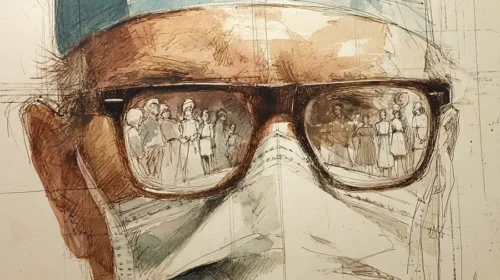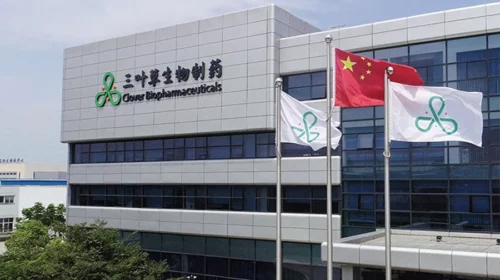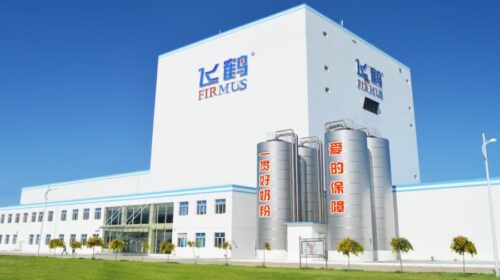Clover Biopharma Gets Critical Cash Booster After Covid Vaccine Approval

The innovative drug maker announced a major share sale a day after its self-developed Covid-19 vaccine got the green light for emergency use in China
Key Takeaways:
- Clover Biopharmaceuticals raised $64 million through a new share placement the day after its Covid vaccine was approved in China earlier this month
- The company could face difficulty as it spends heavily to commercialize the drug, which will compete with four rival products using the same vaccine technology
By Molly Wen
In a major shift of gears, China is suddenly granting rapid-fire approval to Covid vaccines after abandoning its “zero Covid” policy for a more western approach of “living with the virus.” In just a two-day period from Dec. 4 to Dec. 5, the nation approved four new Covid-19 vaccines for emergency use, including SCB-2019, developed by Clover Biopharmaceuticals Ltd. (2197.HK).
Clover has spared no effort on the vaccine, putting much of its resources into a product that looks critical to its very survival. But the vaccine is far from a sure bet due to fierce competition from other products in the market, including the other three newly approved ones. It’s also far from clear what lies next on China’s Covid roadmap. Against such a cloudy backdrop, it’s no wonder that Clover’s shares rose just 2.4% after its Dec. 5 announcement of the vaccine’s approval.
But that didn’t deter Clover from striking while the iron was hot. The company immediately placed 128 million new shares just a day later on Dec. 6, representing 11% of its expanded share capital. The placement price of HK$3.95 represented a 13% discount to its previous closing price – not exactly exuding confidence.
In its announcement of the deal, Clover said it expected to net about HK$500 million ($64 million) from the share placement, and will use the money to commercialize the vaccine, as well as for other regular operations. While that may be good for Clover, investor didn’t like the big discount on the new share sale. The stock tumbled 10% Dec. 6 after the announcement, though at their close of HK$4.08 that day they were still above the placement price.
Fierce competition
Clover’s new vaccine uses recombinant protein, a technology that has been used in hepatitis B and HPV vaccines for decades and was also used in the Covid vaccine developed by U.S. drug company Novavax Inc. (NVAX.US). Clover said SCB-2019 performs better than inactivated vaccines, and can greatly neutralize the globally dominant Omicron BA.5 variant and reduce household transmission of Covid.
The sudden arrival of four new vaccines comes as China races to vaccinate its elderly, one of the most vulnerable groups and also a group with some of the lowest vaccination rates. The country’s 10 latest measures to optimize its Covid response emphasize that local governments should vaccinate as many people as possible, with a special focus on improving the vaccination rate for people over 60.
Such large-scale promotion is almost certain to create big new demand for vaccines in the market. Citic Securities estimated a potential shortage of at least 300 million doses of Covid vaccine for all of China, including a 75 million dose shortfall for people 60 and above.
The new approvals bring the total vaccines approved for use in China to nine, including products from Chongqing Zhifei Biological (300122.SZ) and Livzon Pharmaceutical (1513.HK), both based on recombinant protein technology. In addition to Clover, the other companies with vaccines approved in the latest round include Sinocelltech Group (688520.SH) and WestVac Biopharma.
That means Clover is already facing four rivals using the same technology, giving it little edge in the group. What’s more, Zhifei Biological’s vaccine was approved for emergency use as early as March 2021, giving it a big head start in commercializing. Livzon also has an edge due to its status as an established pharmaceutical giant, boasting annual revenue of more than 10 billion yuan ($1.43 billion) and ownership of more than 300 kinds of pharmaceutical products.
Compared with such heavyweights, Clover is more like an infant just starting out. Mass production of SCB-2019 is just getting started at the company’s site in Changxing, a city in China’s eastern Zhejiang province. As of October the company had yet to complete a good manufacturing practice (GMP) review of basic standards for assuring quality of the drug’s manufacture. Clover’s IPO prospectus last year disclosed it engaged several contract manufacturing organizations (CMOs), including Shanghai Hile Bio-Technology, to help it produce hundreds of millions of additional doses of SCB-2019 this year.
Financial constraints
Clover was once an investor favorite, completing a $230 million Series C financing in February 2021 co-led by GL Ventures and Temasek, with participation from Oceanpine Capital and OrbiMed Funds. OrbiMed Funds, Hillhouse Capital and Temasek poured in more money as cornerstone investors for the company’s Hong Kong IPO in November last year.
But a “capital winter” descended on the sector shortly after the listing. Clover’s shares fell below their IPO price of HK$13.38 on their first trading day, then hovered around the IPO price for the following two months. But the market got even chillier this year, sending the company’s shares as low as HK$2 in October, before bouncing back to HK$4 to HK$5 range in November.
Most biopharmaceutical companies are in a similar bind as Clover, requiring outside investment to fund R&D-intensive operations with no hope of near-term profitability. At the end of June this year, the company had only 2.25 billion yuan left in cash and cash equivalents, with R&D and administrative expenses totaling 1.08 billion yuan in the first half of the year. If it keeps burning through money at that rate, the company could be out of business in about a year.
As it went into survival mode and decided to place its bets on the Covid-19 vaccine, Covid announced in June it would suspend its development of three drugs to save money. The company also applied for a bank credit facility of up to $300 million to help it commercialize the Covid-19 vaccine. Now comes the hard part, as Clover will need to show that it can find a real, money-paying audience for SCB-2019 now that the vaccine has finally been approved.
To subscribe to Bamboo Works weekly free newsletter, click here






